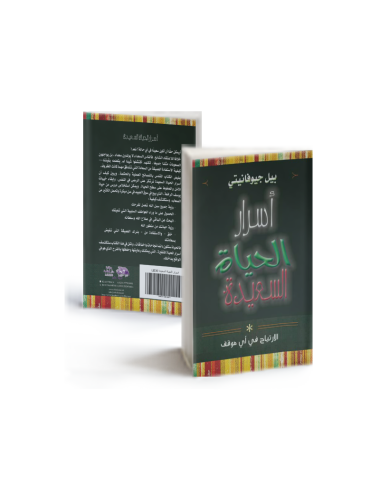the nineteenth of maquerk, based on proverbs 13:4
Sometimes Laziness has its own Reward
0.08 kg - 300 kg
Sometimes Laziness has its own Reward
Children can understand the importance of listening to others when they see how one proud insect learns her lesson in a most of unfortunate way.
Sometimes Laziness has its own Reward
A person has needs in life, and the needs are arranged and gradual, some of them are basic and necessary, some of them touch his physical needs, and they are the ones that preserve his survival and presence in life, and some affect the mental and psychological side, and they help in his advancement, progress and creativity.
Discover time-tested biblical keys to unlocking a life of satisfaction, mined from the life of one of the Bible's greatest heroes.
This book helps Christians to understand the Buddhist mind-set and world view, and to see where there are useful points of comparison and contact. Steve explains the concerns, fears and stresses that Buddhists experience - Buddhism is not a way of harmony and cosmic unity, as Westerners tend to think - and suggests what Christians truly have to offer...
A great book for helping to understand affliction. Very helpful for learning to use affliction for personal growth and for experiencing increased intimacy with God. I recommend it to anyone who has lost a loved one, lost a leg, lost a job and/or suffered any pain or loss during their life's journey.
Children can understand the importance of listening to others when they see how one proud insect learns her lesson in a most of unfortunate way.
Hope is to raise the spirits and arm themselves in the face of all the frustrations that surround modern man
What the future will bring? This issue, which opens Young undiscovered Self in this book, which is one of the most influential books there is no more important problem in our society today the plight of the individual in today's world the most systematic and rigorous.
Berdyev's life was nothing but a triangular struggle against the aristocratic environment in which his family belonged and lived in it, against the revolutionary Marxist environment in which he lived during his first youth and against the orthodox environment in which he lived a mature period in a certain sense.
Reidar Thomte's Kierkegaard's Philosophy of Religion is an excellent read for students beginning their study of one of the "greats" of the nineteenth and twentieth century philosophy. Thomte directly appropriates Kierkegaard's insightful language and discussion of theological and philosophical issues that stimulated him, all of which are still alive and well today.











